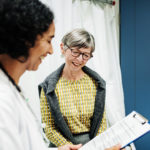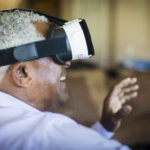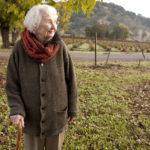Archives
Join Dementia Research reaches 60,000 volunteers
23 November 2022

More than 60,000 people across the UK have now signed up to Join Dementia Research to be informed of dementia studies they can take part in. Since the service began in 2015, a total of 61,639 people have signed up, with 69,515 enrolments into studies during this period. Professor John O’Brien, NIHR National Specialty Lead […]
Dementia during COVID-19 – the lived experience perspective
10 November 2022

A Scottish study which recruited participants through Join Dementia Research has published their findings on the effects of the adapted dementia diagnosis and consultation processes during the COVID-19 pandemic. The research has been co-produced by the University of Edinburgh and the Better Understanding Dementia Diagnosis (BUDDs) lived experience group, and funded by UK Research and […]
Face to face studies currently open
14 April 2022

After a period of many online studies, we are pleased to share that researchers are increasingly inviting participants to take part in face to face studies. Here are some examples of studies currently looking for volunteers to take part in different parts of the UK: Sleep, gut health and cognition study Insomnia in later life […]
How can virtual reality help with early diagnosis of Alzheimer’s disease?
7 March 2022

Alzheimer’s disease is the most common cause of dementia in the UK and the symptoms develop gradually over many years. Background The symptoms of Alzheimer’s disease can progress slowly and many, such as getting more forgetful, can be attributed to ‘just getting older.’ This can make diagnosis more difficult and currently there is no single […]
Give your views on possible new Alzheimer’s treatments
15 February 2022

All medicines may have side effects for the people who take them. But if there was a new treatment to slow or stop Alzheimer’s, how would you weigh up its benefits against its potential risks? That’s what researchers are asking as part of a new project. One of our charity partners, Alzheimer’s Research UK, has […]
Can we predict Parkinson’s?
27 January 2022

Parkinson’s is a progressive neurological condition that leads to tremors, stiffness and difficulty with walking, as it can affect balance and coordination. Parkinson’s has more than 40 symptoms, both motor and non-motor, which usually begin gradually and get worse over time. Every hour, two more people are diagnosed. That’s the same as 18,000 people every […]
Developing strategies for a good night’s sleep
2 December 2021

Many people living with dementia have sleep difficulties which can be troublesome for the person affected, their families and carers. Problems can include reduced and or disturbed sleep, nighttime awakening, wandering and excessive napping during the day. There are currently no effective treatments to help. Aim of the study Researchers from University College London (UCL) […]
RadioMe
16 August 2021

The beneficial aspects of listening to music such as calming anxiety, reducing stress and inducing a relaxing effect, are being tested in a new study for people living with dementia. The context As well as experiencing cognitive decline, people with dementia often also suffer from ‘neuropsychiatric symptoms’ such as depression, irritability, anxiety and hallucinations. In […]
Now that COVID restrictions are gradually lifting, what’s next for dementia research?
15 June 2021

An opinion piece by Professor Alistair Burns, National Clinical Director for Dementia at NHS England and Professor Martin Rossor, NIHR National Director for Dementia Research. During the lockdowns, many of the activities that we know are good for our brain health such as socialising, exercising and other cultural experiences were made more difficult. This […]
Volunteer survey findings 2020
24 May 2021

Every year we ask our Join Dementia Research volunteers to tell us about their experiences of the service via a questionnaire. This helps us to understand what we are doing well and identify areas for improvement. Engagement Despite the challenges of 2020 it was fantastic to see that many of our volunteers are still engaged […]
